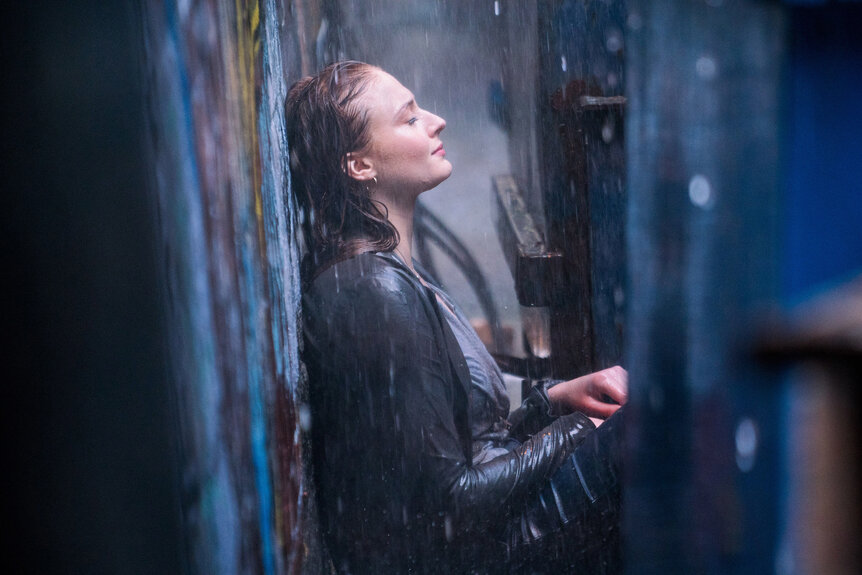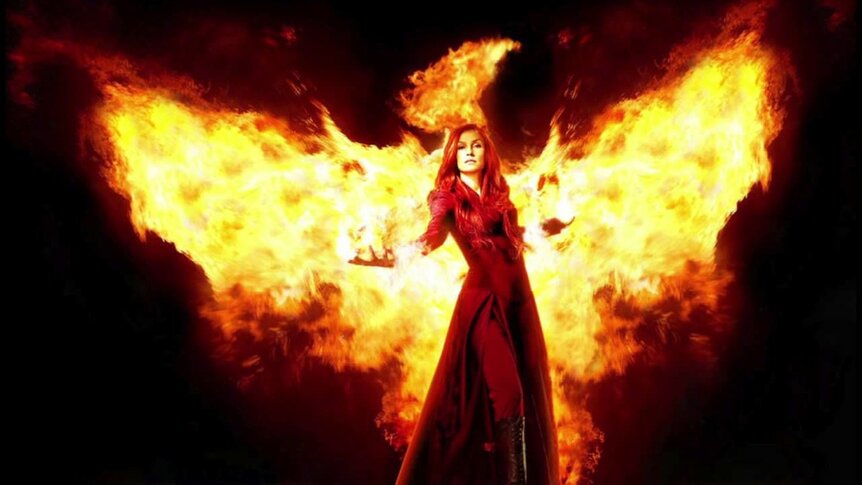Create a free profile to get unlimited access to exclusive videos, sweepstakes, and more!
How 20 years of X-Men movies have completely failed Jean Grey

We owe a lot to the X-Men film franchise. Before there was a Marvel Cinematic Universe or whatever we're calling the DC series of films now, these movies were out here, holding it down for comic book fans everywhere. Sure, they weren't always perfect — who among us can think of that one Storm line about toads getting struck by lightning without physically cringing? — but they are a big part of the reason that comic book films are now an entertainment industry staple.
Since the first X-Men movie debuted way back in 2000, the franchise has spawned a dozen feature films and spinoffs. It's been rebooted and remixed and even managed to get some Oscar buzz at one point. But despite its many — and quite varied — successes and failures over the years, there's one aspect of the X-Men saga these movies have never managed to do well, despite what feels like an almost continuous effort.
The X-Men films completely fail the character of Jean Grey, paying lip service to the idea of her power and the importance of her journey but ultimately choosing to center a string of male characters in what should be her story.
Jean is one of X-Men's most iconic characters, a telepath and telekinetic with abilities that can rival even Charles Xavier's. Her story is so well known and so important to the franchise that these films have attempted to adapt it on two different occasions (X-Men: The Last Stand and Dark Phoenix), with two different actresses (Famke Janssen and Sophie Turner) in the role. Yet none of these efforts are successful. Why? Because though the X-Men films attempt to adapt various pieces of the Dark Phoenix saga, none of these movies make much of an effort to actually tell a story about Jean.
How does she feel about her powers? How do they really affect her? Why is she the character that's so frequently depicted as being especially susceptible to darkness? And why does she ultimately choose the light?
Despite the fact that she's one of the franchise's few female leads, Jean gets little in the way of agency in her own life. Her stories are almost always used as vehicles for other characters, and no matter what she's going through, she has little interiority. This is not a new problem where this character is concerned — the X-Men comics themselves often suffer from similar issues. But that fact doesn't excuse multiple adaptations that double down on the worst aspects of the problem, from embracing some of the worst tropes around the villainization of powerful women to using a female character's pain to dive story for the men around her.
In The Last Stand, the Dark Phoenix story is largely subsumed into the messy debate over the possibility of a mutant "cure." Our only real clue that Jean has gone "dark" is that she suddenly starts wearing distinctly '90s-era Hot Topic fashions, including an extremely unnecessary and uncomfortable-looking corset. In Dark Phoenix, a film that's literally named after her, Jean is given less to do than many of the male characters in the movie, and the story is grounded in Charles' and even Erik's pain at various points but almost never in her own.
Lost in the shuffle is the idea that Jean's story is something that has value in its right, outside and apart from those around her. After all, it's difficult to be properly horrified by Jean's turn to darkness when we've seen so little of her life as a hero. And the depth of her fall can only be properly contextualized if she has a strong enough role in the X-Men that her decision to turn away from them actually feels like a loss for both sides.
Much of Jean's comics story is driven by how much she cares about her teammates, and how much they, in turn, care about her. In the films, however, though we're told that she and Scott are deeply in love and that she and the rest of the X-Men are close, they don't do much in the way of showing us either of those facts. In both sets of X-Men films, Jean and Scott's relationship appears to exist because their comics story says it has to, and little if any screen time is devoted to their romance. Jean's other friendships are not mentioned, and her relationship with Professor Xavier is a gaslighting mess that the films seem disinclined to look at too closely. (Other than when, of course, it's time for Charles to feel guilty about it.)
From her first appearance onscreen in this franchise, Jean's role has been a supporting one at best, and her very real trauma is often exploited but never truly explored. As a character, Jean's primary purpose seems to exist for Scott and Logan to fight over or provide Charles with a moral quandary to angst about. Jean's struggle with the immense power roiling inside of her — Phoenix-based or otherwise — is an afterthought, at best.
Even the most intriguing sequence in Dark Phoenix, in which Jean goes to see Magneto in the hopes that he can help her understand the dark lure of her new abilities without judging her for them, eventually becomes all about Erik's grief over Raven's death. Wouldn't this have been a perfect entry point to discuss how Jean feels — about killing a friend, or not entirely hating the idea of these new cosmic abilities that have been thrust upon her? We've already seen what happens when Magneto experiences loss. It's not pretty, but it's also not a new story.
To be fair, The Last Stand and Dark Phoenix each have enjoyable moments and several fabulous set pieces. And both Janssen and Turner make great Jeans, who each do their best to convey the strength and the pain of a character who is, at best, rather nebulously defined. But as the X-Men join the Marvel universe, and this franchise is inevitably rebooted for the third time, it's worth saying: We aren't doomed to repeat these mistakes forever. Or, at least, we don't have to be. There's no reason that X-Men movies must focus on Charles, or Erik, or Logan, or even Scott.
The new generation of X-films can let the women take the lead, and tell the stories of these characters we've all be waiting to see. Let Jean lead the way, for once, instead of always being left behind.




























